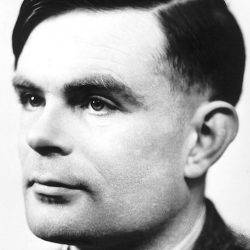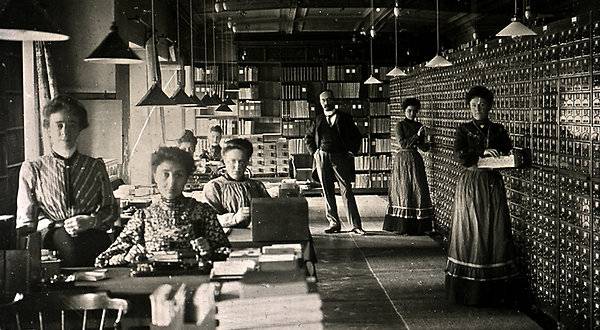 In his 1998 e-book A Temporary Historical past of Time, Stephen Hawking relates the next anecdote: “A well known scientist (some say it was Bertrand Russell) as soon as gave a public lecture on astronomy. He described how the earth orbits across the solar and the way the solar, in flip, orbits across the centre of an enormous assortment of stars known as our galaxy. On the finish of the lecture, slightly previous woman behind the room received up and stated: “What you could have advised us is garbage. The world can be a flat plate supported on the again of an enormous tortoise.” The scientist gave a superior smile earlier than replying, “What’s the tortoise standing on?” “You’re very intelligent, younger man, very intelligent,” stated the previous woman. “Nevertheless it’s turtles all the way in which down!”
In his 1998 e-book A Temporary Historical past of Time, Stephen Hawking relates the next anecdote: “A well known scientist (some say it was Bertrand Russell) as soon as gave a public lecture on astronomy. He described how the earth orbits across the solar and the way the solar, in flip, orbits across the centre of an enormous assortment of stars known as our galaxy. On the finish of the lecture, slightly previous woman behind the room received up and stated: “What you could have advised us is garbage. The world can be a flat plate supported on the again of an enormous tortoise.” The scientist gave a superior smile earlier than replying, “What’s the tortoise standing on?” “You’re very intelligent, younger man, very intelligent,” stated the previous woman. “Nevertheless it’s turtles all the way in which down!”
No matter you consider this explicit piece of knowledge from the previous woman, it’s a helpful analogy on the subject of contemplating the place concepts come from. The precept of infinite regression is a helpful method of trying on the method vital concepts develop, as a result of we are inclined to assume that nice formative concepts spring out of the blue from a particular nice thoughts, when the reality is way extra fascinating.
However everytime you look under one of many geniuses that provide up nice concepts, you’ll see different geniuses and different new concepts all the way in which down. A great instance of that is provided by the instance of Alan Turing (above), the face on the £50 be aware as we Brits attempt to make some type of amends for his maltreatment and the topic of a biopic given added lustre by the presence of Benedict Cumberbatch within the starring position. Turing is rightly seen as one of many nice pioneers of pc science however he has (admittedly belatedly) constructed this repute as a part of a lineage of nice thinkers about our relationship with info.
Whereas many know the story of Turing and Tim Berners Lee, others had additionally sought to search out new methods of organising all of the world’s info.
Within the late 19th and early 20th Century an eccentric, visionary and idealistic Belgian named Paul Otlet spent 5 a long time endeavouring to catalogue each vital recorded fragment of human thought and information. The end result was a reference listing of some 15 million books, journal and newspaper articles, photos and museum items saved on index playing cards and often called the Common Bibliographic Repertory.
This was the proto-Web, not least as a result of Otlet’s goal was not merely to horde the data however to make it accessible for most of the identical idealistic causes we now affiliate with the world large internet, together with peace between nations, social and political reform and the democratisation of information.
The issue of accessibility
The problem Otlet confronted was the best way to make this repository accessible to individuals. His answer was a mail order system often called the Mundaneum which was primarily Google by put up. By 1912, seventeen years after Otlet started work on his system, he was fielding round 1,500 requests for info a 12 months, which his crew responded to by looking information and replying painstakingly by hand. The system grew to become totally accessible in 1920 and, with the assist of the Belgian authorities was provided a house.
In 1934, Otlet was already trying to expertise as a method of constructing sense of his archaic system of index playing cards. He had a imaginative and prescient of a system of networked terminals that will permit individuals to go looking via an enormous assortment of thousands and thousands of items of knowledge. He was a pioneer of microfilm from the earliest years of the century and noticed this expertise as central to his goal of constructing info accessible on a world foundation a long time earlier than the Web first appeared.
The entry system he envisioned would permit individuals to uncover a selected passage or truth in a doc saved on microfilm, retrieved through a mechanical indexing and retrieval software. Half a century earlier than it grew to become a actuality, Otlet had dreamt of one thing very very similar to right now’s Web.
Sadly for Otlet and his colleagues, Northern Europe within the mid Twentieth Century was not the type of place to carry visionary beliefs about internationalism, pacifism and the sharing of concepts and information.
The Belgian Authorities had reduce funding because the storm clouds gathered within the mid Nineteen Thirties forcing Otlet and his crew to maneuver to inferior premises. The Nazi censors ultimately knocked on his door in 1940 and, though initially baffled by and contemptuous of his goals and strategies, describing it as ‘a pile of garbage’, have been quickly to plot its destruction.
Even so, Otlet was rattled by the eye the e-book burners have been giving his assortment and it grew to become obvious to him that he wanted to do one thing to protect his life’s work. He went as far as to write down to President Roosevelt to supply the repository in its entirety to the US however Roosevelt by no means responded.
He continued to plead with the People to rescue his work, however simply days after his third plea to the President, troopers raided his office and destroyed his listed supplies together with 63 tons’ of books Otlet had meticulously preserved and changed it within the constructing with a group of Nazi artwork.
Undeterred, Otlet moved the remnants of his assortment to a run-down constructing in Brussels however by 1944, because the battle was about to finish and a brand new age ushered in throughout Europe and the World, he died. The Mundaneum limped on till 1972 and was all however forgotten together with Otlet’s repute as a pioneer of the data age till he was reassessed because the Web developed concepts that have been markedly much like his personal.
In 1998, the revived Mundaneum moved completely to a brand new residence in Mons and in 2012, introduced a partnership with Google to create a Mundaneum web site , at present the topmost turtle on this explicit stack, however maybe not for lengthy.

Mark is the writer of Office Perception, IN journal, Works journal and is the European Director of Work&Place journal. He has labored within the workplace design and administration sector for over thirty years as a journalist, advertising and marketing skilled, editor and marketing consultant.




